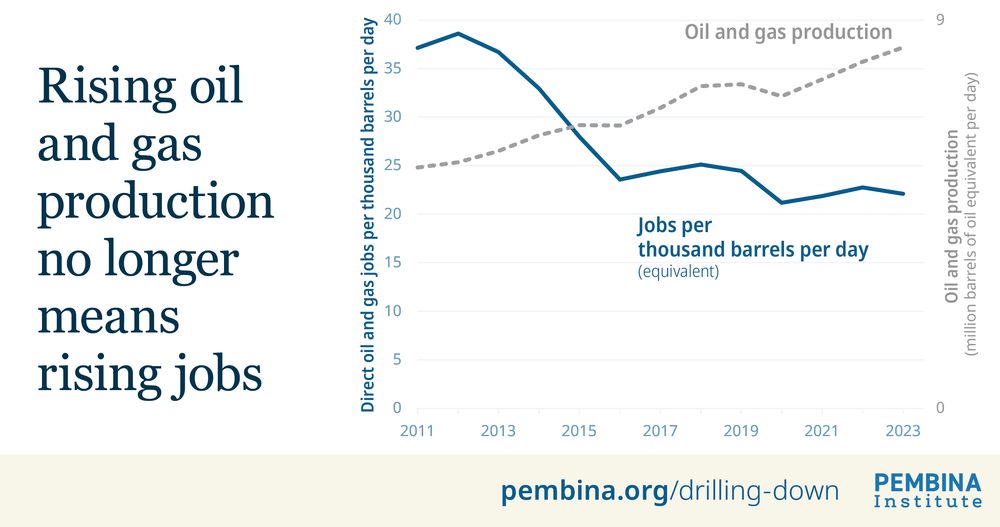But the key thing is, they did it while growing their production and experiencing record profit years. Production ⬆️ 47% Direct jobs per barrel ⬇️ 43% More oil and gas production, fewer people directly employed. www.pembina.org/pub/drilling...
Replies
Companies achieved this by adopting shorter-term outlooks: 📉 Less investment in long-term megaprojects that create jobs now and production later 📈 More short-term production at existing sites ➡️ Buying out companies to bolster market share 💵 Cost cutting, like automation 3/5
In other words, companies aren’t behaving as if they're gearing up for a future of massive production expansion. Instead, they’re minimizing costs and maximizing short-term profits. Which makes sense, given softening demand for oil & gas across key global markets. 4/5
So we ask: How should these long-term changes in oil and gas employment inform our national discussion about nation-building projects right now? Perhaps it’s time to focus on projects that bring good, long-term jobs, in future-proofed sectors. 5/5 www.pembina.org/pub/sustaina...
Since most of those businesses recognize they're in the "long tail" stage of profit-taking, this would be an exceptionally good time to take their money for site cleanups.
I mean, the best time would have been "while they were making the mess," but the second best time is right now.

